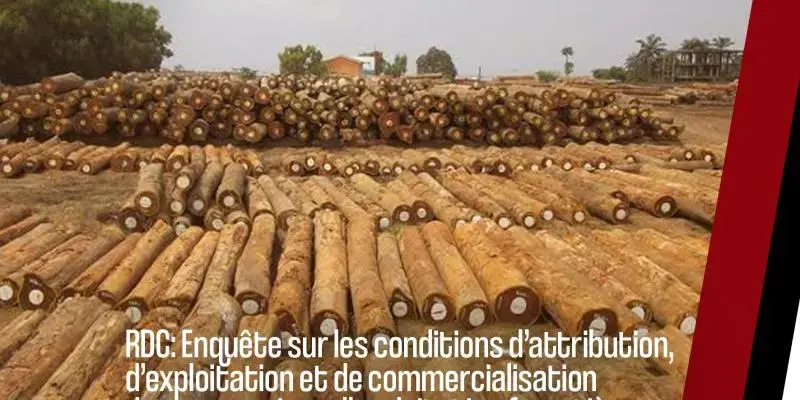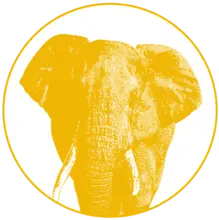This story excerpt was translated from French To read the original story in full, visit Actualite. You may also view the original story on the Rainforest Journalism Fund website here. Our website is available in English, Spanish, bahasa Indonesia, French, and Portuguese.

This article is one of a series produced as part of the investigation into the conditions under which logging concessions are awarded, operated and marketed.
Since Congolese President Félix Tshisekedi came to power, numerous reports such as those by the Inspection Générale des Finances and the Commission Interministérielle de Revisitation des Contrats d'Exploitation Forestière have criticized the forestry sector and recommended sanctions—without, however, putting an end to the opacity of its management.
"It's not possible to tell you, a journalist, whether a company is in order or not." This is the unequivocal response of Jean Muteba Kasendue, head of the Communication & Documentation Division at the Direction Générale des Impôts (DGI) to ACTUALITE.CD's questions. He merely reminded us that the DGI is not interested in a company's sector of activity, but only in its category: micro, small, or large.

As a nonprofit journalism organization, we depend on your support to fund journalism covering underreported issues around the world. Donate any amount today to become a Pulitzer Center Champion and receive exclusive benefits!
At the Labour Inspectorate, any response was conditional on payment of a "consultancy fee." "Information is not given for free, it's consultancy," insisted our interlocutor on several occasions. Nor did civil society get any answers from the various institutions responsible for monitoring compliance with the provisions of the forestry code. The National Coalition Against Illegal Logging (CNCEIB) even admits that it has no contact with state control services.
The only public information available to ensure citizen control of logging companies is to be found in reports published without any real official communication. The most interesting of these are undoubtedly those produced by the Observatoire de la Gouvernance Forestière (OGF), which brings together representatives from the Ministry of the Environment, civil society, and the companies it monitors. This non-profit association was set up in September 2012 and has already produced 18 reports from field visits. For the past 11 years, it has been monitoring forest management and logging activities in the DRC, and overseeing the application of forest legislation.


